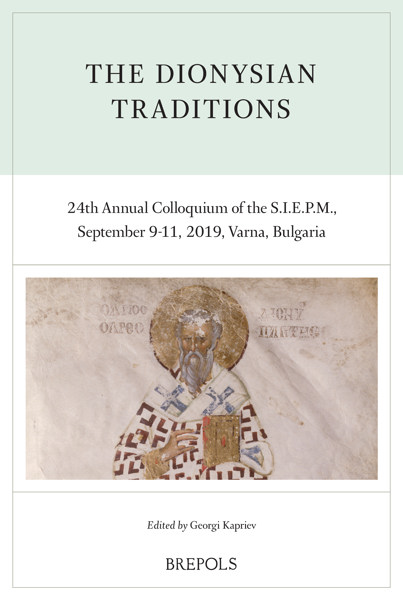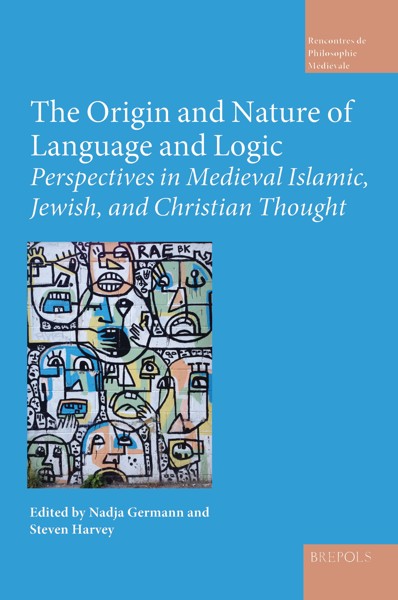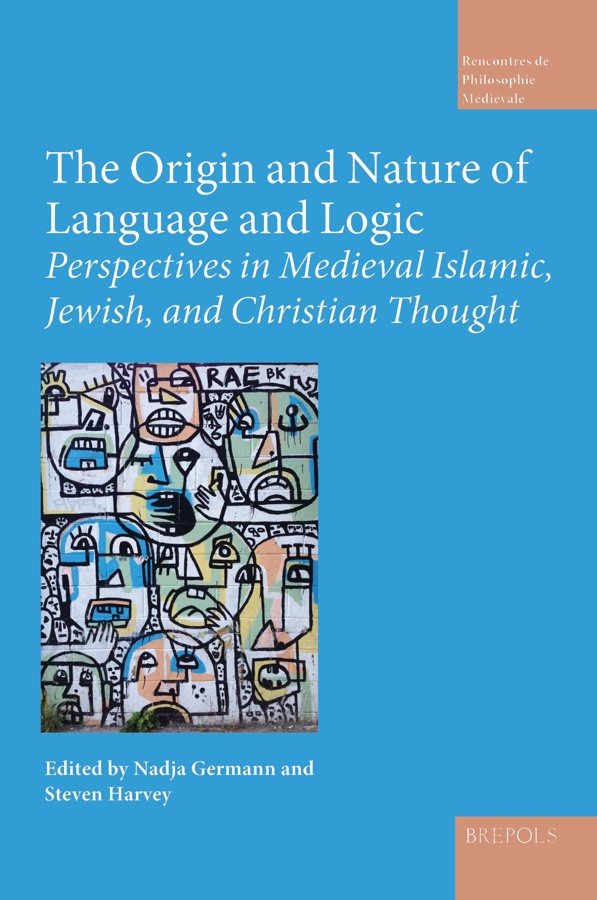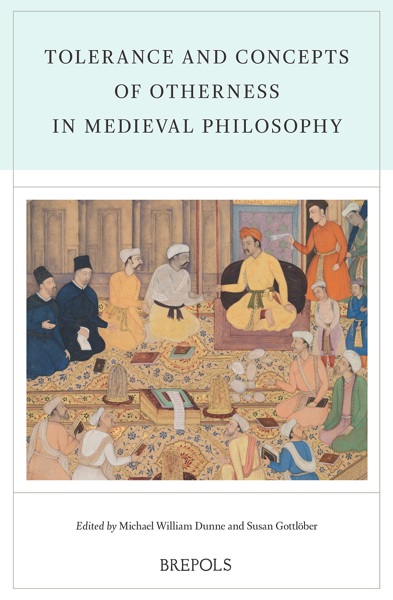
The Origin and Nature of Language and Logic
Perspectives in Medieval Islamic, Jewish, and Christian Thought
Nadja Germann, Steven Harvey (eds)
- Pages: xiv + 422 p.
- Size:156 x 234 mm
- Language(s):English, French
- Publication Year:2020
- € 70,00 EXCL. VAT RETAIL PRICE
- ISBN: 978-2-503-58892-6
- Hardback
- Available
- € 70,00 EXCL. VAT RETAIL PRICE
- ISBN: 978-2-503-58893-3
- E-book
- Available
A wide-ranging, cross-cultural approach to the study of medieval philosophy of language and thought, semantics and logic – fields that deeply engaged Islamic, Jewish, and Christian philosophers, theologians, and grammarians over the centuries.
Nadja Germann is Professor of Philosophy at the University of Freiburg. She specializes in philosophy of language, epistemology, theory of cognition, and metaphysics, with a particular focus on pre-modern Arabic-Islamic thought.
Steven Harvey is Professor Emeritus of Medieval Islamic and Jewish Philosophy at Bar-Ilan University, and President of the Commission for Jewish Philosophy of the S.I.E.P.M. He has published extensively on the medieval Jewish and Islamic philosophers, especially their interrelationships and their Aristotelian commentaries.
The annual colloquium of the SIEPM in Freiburg, Germany, was groundbreaking in that it featured a more or less equal number of talks on all three medieval cultures that contributed to the formation of Western philosophical thought, the Islamic, Jewish, and Christian traditions. Indeed, the subject of the colloquium, ‘The Origin and Nature of Language and Logic in Medieval Islamic, Jewish, and Christian Thought’, lent itself to such a cross-cultural approach. In all these traditions, partially inspired by ancient Greek philosophy, partially by other sources, language and thought, semantics and logic occupied a central place. As a result, the chapters of the present volume effortlessly traverse philosophical, religious, cultural, and linguistic boundaries and thus in many respects open up new perspectives. It should not be surprising if readers delight in chapters of a philosophical tradition outside of their own as much as they do in those in their area of expertise.
Among the topics discussed are the significance of language for logic; the origin of language: inspiration or convention; imposition or coinage; the existence of an original language; the correctness of language; divine discourse; animal language; the meaningfulness of animal sounds; music as communication; the scope of dialectical disputation; the relation between rhetoric and demonstration; the place of logic and rhetoric in theology; the limits of human knowledge; the meaning of categories; the problem of metaphysical entailment; the need to disentangle the metaphysical implications of language; the quantification of predicates; and the significance of linguistic custom for judging logical propositions.
Nadja Germann and Steven Harvey, Introduction
1. The Origin and Nature of Human Language
Pierre Larcher, « Et Allah apprit à Adam tous les noms… » (Cor., 2, 31) : L’Origine du langage dans la pensée islamique
Warren Zev Harvey, Three Medieval Jewish Philosophers on the Hebrew Language
Aviram Ravitsky, Maimonides’ Linguistic Thought and Its Greek, Islamic and Jewish Background
Beata Sheyhatovitch, The Notion of Waḍʿ in Sharḥ al-Kāfiya by Raḍī al-Dīn al-Astarābādhī
Josef Stern, Profayt Duran’s Ma‛aseh Efod: The Philosophical Grammar of a Converso
2. Non-Human and Non-Verbal Communication
Ziad Bou Akl, Dieu comme locuteur : le bayān et son report dans les uṣūl al-fiqh
Luis Xavier López-Farjeat, The ‘Language’ of Non-Human Animals in al-Fārābī and Avicenna
Thérèse-Anne Druart, What Does Music Have To Do With Language, Logic, and Rulership? Al-Fārābī’s Answer
3. The Nature, Kinds, and Limits of Logic
Laurent Cesalli, De quibus est logica ? La position de Gauthier Burley dans le débat médiéval
Fouad Ben Ahmed, Ibn Ṭumlūs on Dialectical Reasoning: The Extent of His Reliance on al-Fārābī and Averroes
Catherine König-Pralong, Roger Bacon. Rhétorique et sens littéral
Peter S. Eardley, Rhetoric and the Epistemic Status of Theology in the Late-Thirteenth Century
Yehuda Halper, Abraham Bibago on the Logic of Divine Science: Metaphysics α and the Legend of the Pardes
4. The Significance of Language for Logic
Pasquale Porro, Keeping Language under Control: Late-Antique and Medieval Interpretations of the First Chapter of Aristotle’s Categories
Margaret Cameron, The Constraints of Nature(s): Abelard on Modality, Understanding and Linguistic Meaning
Charles H. Manekin, Logic, Linguistic Custom, and the Quantification of the Predicate in Gersonides




